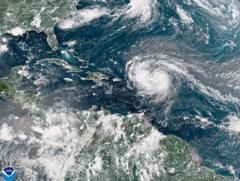Lliuya's case claimed that RWE contributed 0.5% of global emissions and thus should bear a proportional cost related to safeguarding Lake Palcacocha, where potential flooding threatens his community. The amount he sought for damages was approximately $19,000. In preparation for the ruling, the court sent experts to evaluate the lake's situation and conducted extensive hearings. However, the experts determined that the risk of flooding affecting Lliuya’s property was only 1% over the next three decades. Despite the case's failing to win damages, it sets a precedent that could inspire future legal actions against major emitters.
German Court Ruling Signals New Future for Climate Litigation

German Court Ruling Signals New Future for Climate Litigation
A recent decision by a German court dismisses a climate lawsuit but paves the way for future cases against big polluters.
A Peruvian farmer's climate suit was dismissed by a German court, yet the ruling signals significant legal possibilities for holding corporations accountable for global emissions. The case, which had been in pursuit for nearly ten years, was brought by Saúl Luciano Lliuya, who argued that his hometown in Peru faces flooding risks due to climate change exacerbated by the emissions of RWE, Germany's largest utility. While the court ruled against him, it notably stated that German civil law can indeed attribute responsibility for emissions’ impacts worldwide. This landmark recognition, according to Lliuya's attorney Roda Verheyen, could stimulate future climate lawsuits against fossil fuel firms globally.


















